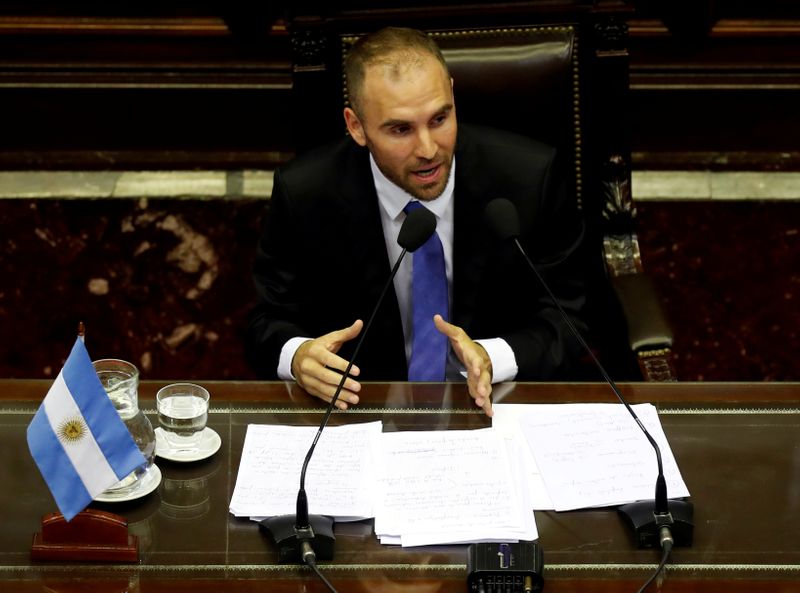By Hugh Bronstein
BUENOS AIRES (Reuters) - Argentine bonds were paralyzed on Monday as investors awaited word from debt talks between the cash-strapped government and its biggest creditor, the International Monetary Fund, that were expected to set the tone for a massive bond restructuring ahead.
Local debt prices took a hit last week after the government was forced to abandon a bond sale due to low investor interest, and then stunned holders by unilaterally pushing back the principal payment of a local bond that had been due on Thursday.
A team of IMF economists is in Buenos Aires negotiating the rejig of $44 billion in loans that Argentina says it cannot pay.
A statement expected from the fund on Wednesday, at the conclusion of the talks, may indicate how much debt relief it is willing to grant, and how supportive it will be of the country's plan to restructuring more than $50 billion in sovereign bonds.
"An IMF statement that supports a lenient restructuring offer would boost bondholder confidence," said Mateo Reschini, a trader with Rosario-based brokerage LBO.
"But if the IMF sounds like it will not be flexible on collecting its own loans, it will be mayhem because that would mean Argentina would have to be even harsher in the restructuring of is privately held bonds," Reschini said.
Argentine bonds fell an average of 2% last week. With the government warning of a "deep restructuring" ahead, economists agreed prices still have room to move down depending on the signals that come from the IMF meetings.
"The market is just as afraid of the IMF at this point as it is of the government," he added.
Economy Minister Martin Guzman told Congress last week that the government will neither impose fiscal austerity on a country already in recession nor keep paying what he called unsustainable debt that President Alberto Fernandez inherited when he took office in December.
Guzman said austerity policies previously prescribed by the IMF were to blame for Argentina's debt crisis, and warned that future policies would not be dictated by bondholders, who are likely to find the upcoming negotiations "frustrating."

Guzman has set a March 31 deadline for getting the debt revamps done, a time frame that analysts call challenging.